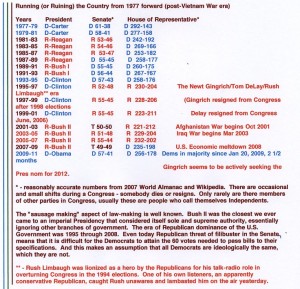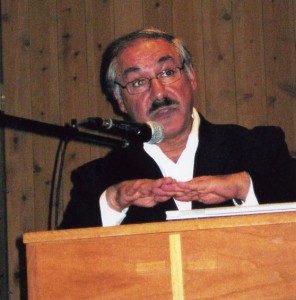#175 – Dick Bernard: The Nuns, the Bishops and Rome
In the weeks just past the Catholic Hospital Association and a coalition of Catholic Nuns, leaders of their orders, basically changed the conversation on the Health Care Reform legislation by coming out in support of the Health Care Reform proposal which passed tonight.
On the other hand, the Catholic Bishops and Rome didn’t have a particularly good week last week.
I’m a lifelong Catholic, and an active one. Personal circumstances years ago have made me a pro-choice Catholic. I spent my first six school years in Catholic grade schools, and in the years since I’ve had some great friends who are, and who were, Sisters. I offer my own thoughts, from my own experience.
Statistics indicate that perhaps one-fourth of the population of the United States might be Catholic. I’m always intrigued by this statistic: I wonder how they arrive at these numbers.
But, assuming that it’s true, three-fourths of the population has no reason to care or understand how the Catholic Church works. Most Catholics don’t either. I’ve had an interest in the topic for years, and even after years of seeking, I have only an imperfect understanding of the topic of “the Church”.
Nuns – also called Sisters, and Religious – were a huge influence during my growing up years. They were our parents during the school day, if we were attending Catholic Schools. We lived with them, in small towns and large. They are the stuff of legend.
I never had a bad experience with Nuns (nor with Priests, but that’s a different story). Nuns were our every day teachers, counselors, disciplinarians. They were powerful people, in our eyes. So we remember them. They never had easy conditions. They had large classes, often more than one grade, and I don’t recall one of them being sick – at least no calling in sick!
Priests were not nearly as visible or as truly influential (they don’t appear in my title for a reason). Altar Boys (one of which I was in my youth) had a closer connection. The mysterious Bishop was the real “father”, who came by once a year for confirmation, and one time in one’s adolescence a kid might have a personal moment with the Bishop, when the Bishop asked some softball question about the Catholic Catechism. The Pope and Rome were a picture on the wall: in my day, it was Pope Pius XII.
In Catholic Hospitals, it was the Nuns who were the “boots on the ground” folks. In most cases they established and staffed the hospitals, and helped them grow into pillars of thousands of communities in this country and others. Hospitals and Catholic Nuns are virtually synonymous everywhere.
Without Catholic Nuns, there would not have been Catholic Hospitals; nor would there have been Catholic Schools. Nuns are largely elderly now, and they’re not being replaced. There are good reasons for this; when they are no longer around, they will be missed. Four of my great Nun friends have died in recent years; a fifth, near 90 now, no longer knows who I am. It is sad.
I’ve had extended conversations with Nuns from time to time over the years, and what is apparent is that the assorted orders of Nuns, while generally obedient to the Bishop and thus to Rome, are not necessarily subservient to the dictates of their local Bishop.
In the case at issue, health care reform, I think the tipping point for the Nuns was finally reached where the leaders of numerous orders of Catholic Nuns, as well as Catholic Hospitals, could no longer stay below the radar, and felt a need to speak out in favor of what was plainly needed by our society.
The Bishops took a strident and rigid position on a single aspect of the reform question, and allied themselves with others taking a strident position.
This led to a significant parting of the ways. For most of history, the orders of Nuns have stayed in the background, silent, doing their jobs. There could be an illusion that they were completely obedient.
(At times during the civil rights movement, they also violated the rules by participating in civil rights marches in the south, while the local Bishop specifically prohibited their participation. But this is one of the few times they’ve taken an overt stand.)
No one questions the respect for life these Nuns have.
For that matter, those of us who are pro-choice equally respect life.




